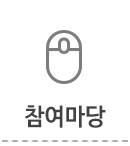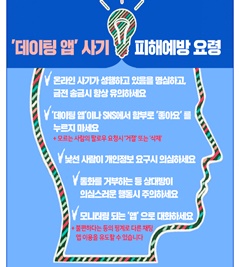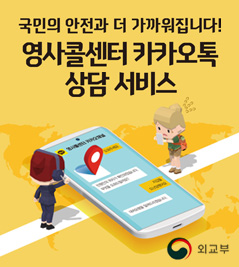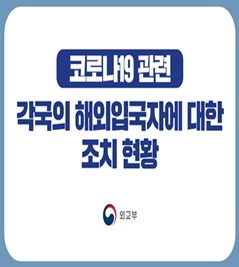[생활][해석] 르바란과 라마단
19,007
2012.07.14 14:33
짧은주소
본문
이번 2012년 르바란은 8월 19일입니다.
르바란을 앞두고 르바란과 라마단을 잘 설명한 문서가 있어서 공유합니다.
~~~~~~~~~~~~~~~~~~~~~~~~~~~~~
Idul Fitri, more commonly referred to in Indonesia as Lebaran, is the celebration
that comes at the end of the Muslim month of fasting, Ramadhan. The Arabic
meaning of Idul Fitri is “becoming holy again”.
통상 인도네시아에서 르바란(Lebaran)으로 언급되는 이둘피트리(Idul Fitri)는 이슬람 금식기
간인 라마단(Ramadhan) 마지막에 이뤄지는 행사를 말한다. 이둘피트리의 아랍어 어원은 “다
시 영적으로 돌아가는 것”이다.
The dates of the ninth month of the Muslim calendar, Ramadan, vary from year to
year, as the Muslim calendar (Hijrah) is based on a lunar cycle of 29 or 30 days.
The exact date is determined by the sighting of the new moon. These lunar
calculations lead to an official announcement by the government on the eve of
Ramadan and Idul Fitri so that the faithful know when to begin and end the
fasting month. In 2012, Lebaran is expected to fall on 19-20 August, with
"collective leave" on 21-22 August.
이슬람력(Hirah)의 아홉 번째 달인 라마단은 29~30일 주기인 음력에 기반을 두기 때문에 매
년 달라진다. 정확한 날짜는 달의 형태를 관찰해서 결정한다. 이슬람 지도층은 이슬람력을 이
렇게 계산하여 라마단기간 전날에 공식적인 성명을 발표하고 이슬람신도들에게 금식기간의 시
작일과 마지막 날을 알린다. 2012년 르바란은 8월 19~20일, 공휴일은 21~22일 경으로 예상
된다.
Ramadan
To understand the significance of Lebaran, an understanding about the fasting
month of Ramadhan is important. During the month of Ramadhan, Muslims must
refrain from eating, drinking, smoking, marital relations or getting angry during
the daylight hours. In addition, those fasting are supposed to refrain from bad
habits - lying, getting angry, using bad language as well as to be more diligent in
prayer and give to charities. It is believe that fasting heightens spirituality and
develops self-control.
라마단
르바란의 중요성을 이해하기 위해서는 라마단 금식기간에 대한 이해가 필요하다. 이슬람교도
는 낮시간 동안 음식물 섭취, 흡연, 부부관계, 화를 내는 것 등이 금지된다. 또한 이러한 금식
기간에는 눕는 것, 화내는 것, 비속어를 사용하는 것 등의 나쁜 행동을 자제하며, 더 많이 기
도를 하고 자비를 베풀도록 한다. 금식은 신앙을 높이는 것이고 자신을 개발하는 것이라 여겨
진다.
The fast begins in the morning just before sunrise, at Imsak, and is broken at
maghrib which falls at sunset. Fasting during the month of Ramadhan is one of
the five pillars of Islam and an obligation for devout Muslims.
금식은 일출 전 임삭(Imsak)에 시작되어 일몰인 마그립(Maghrib)에 해제된다. 라마단기간동
안의 금식은 이슬람의 다섯가지 의무(Pillar)중의 하나이고 경건한 무슬림의 책무이다.
Those who are expected to fast include: adults (defined as those who have reached
the age of puberty) and those who are sane. Those who are not expected to fast
include: children, women having their period, travelers, the sick, those with
long-term illnesses, pregnant or breastfeeding women and the mentally ill.
금식 대상은 성인(사춘기가 지난 사람으로 정의)으로 분별 있는 사람들이다. 금식 대상에 포함
되지 않는 자는 어린이, 생리중인 여성, 여행자, 장기간의 병자, 임산부, 수유중인 여성, 정신
질환자이다.
The faithful who fast awaken early in the morning to have a meal before subuh.
In order to awaken the faithful, the call to prayer is sounded from neighborhood
mosques. In addition, groups of young boys walk around neighborhoods beating on
drums and other noise makers to awaken the faithful (and their neighbors) yelling
out "sahur, sahur".
금식중인 이슬람신도는 동 트기 (Subuh) 전에 식사하기 위해 아침 일찍 일어나야 한다. 이슬
람신도를 깨우기 위한 기도방송이 회교사원(Mosque) 주위로 방송되고, 또한 젊은 사람들이
모여 다니며 드럼과 기타 물건 등을 두드리며 "sahur(동트기 전 먹는 식사)"라고 큰소리로 외
쳐 주변의 이슬람신도들을 깨운다.
The breaking of the fast at sunset is a very social occasion for which special
foods are prepared for gatherings with family or friends. Upon hearing the sound
of the bedug drum on the television or the call to prayer from the neighborhood
mosque at sunset, the faithful know it's time to break their fast, or buka puasa.
This is usually done with a very sweet drink and sweet snacks. Maghrib prayers
are made before a full meal is served. Taraweh congregational prayers are held in
neighborhood mosques and at gatherings every evening at about 7:30 p.m. These
prayers are not compulsory, but they are enjoyed by many.
일몰의 금식기간 해제는 좀 더 사회적인 행사로 가족과 친구들이 함께 모여 특별한 음식을 준
비한다. 일몰시에 텔레비전이나 주변 사원의 기도방송 북소리(Budug drum)를 듣고, 이슬람
신자는 금식해제(Buka puasa)를 알게 된다. 이 때 단음식으로 음료나 스낵을 먹게 된다. 일
몰기도(Maghrib prayer)는 온전한 식사 전에 이뤄진다. 저녁기도(Traweh congregational
prayer)는 주변의 회교사원에서 열리는데 매일 저녁 7:30분에 모임이 이뤄진다. 이러한 기도
는 의무적인 것이 아니며 대부분의 사람들에게 즐거움으로 인식된다.
The schedule for Imsak and Maghrib is posted in major newspapers and on the
television throughout Indonesia, as well as published in handouts by major
religious organizations.
일출(Imsak)과 일몰(Maghrib) 시간은 주요일간지와 텔레비전으로 인도네시아 전역에 공시되
고 주요 종교 조직에 의해 유인물로 발간된다.
While it is expected that people will keep to their normal activities during the fast,
needless to say the lack of liquid and food during the day and the unusual sleep
and meal schedule soon take their toll. After the first week you may see that sleep
and food deprivation cause those fasting to have reduced energy levels as well as
finding it more difficult to concentrate on tasks.
금식기간동안 이슬람교도가 정상적 활동을 유지할 것으로 기대하지만, 언급할 필요도 없지만
금식기간 동안의 부족한 음식섭취, 비정상적인 수면은 이내 이슬람신도에게 영향을 준다. 일
주일 후면 금식으로 인한 수면과 음식부족은 활동력을 감소시키고 업무에 대한 집중을 어렵게
만든다.
Lebaran
At the end of the month of Ramadhan and its special religious observance is the
Eid holiday, called Idul Fitri or Lebaran in Indonesia. In Indonesia, this is the time
when Muslims visit their family and friends to ask for forgiveness for any wrongs
they have committed in the previous year. They express this wish in the phrase
“Mohon Maaf Lahir Batin” which means "forgive me from the bottom of my
heart/soul for my wrongdoings in the past year". A traditional Arabic (Muslim)
greeting for the Eid celebrations is also commonly used in Indonesia "Minal Aidin
Wal Fa Idzin", which is expressed upon meeting friends and family during the
festive days. Traditional foods are consumed, family and friends gather to ask
forgiveness and exchange greetings, new clothing is worn, children receive gifts of
money and visits are made to recreational parks -- all to celebrate the successful
completion of the fasting month. On Java, prior to the start of the fasting month
(but not during it), visits are made to the graves of family ancestors (nyekar) to
pay respects, clean the grave and leave flowers, causing major traffic jams near
all major cemeteries.
르바란
라마단기간의 종료시 라마단의 특별한 종교적 의식이 인도네시아에서 이둘피트리, 르바란이라
불리는 이드 홀리데이(Eid Holiday)이다. 인도네시아에서 르바란은 이슬람교도가 그들의 가족
과 친구를 방문하는 특별한 시기로 이전에 잘못들에 대해 용서를 구한다(르바란인사). 이슬람
교도들은 “Mohon Maaf Lahir Batin"이라는 문구를 사용하여 그들의 희망을 표현하고, 이것
은 과거에 잘못한 행동에 대해 마음과 영혼의 깊은 곳으로부터 용서해 달라는 뜻이다. 이드
홀리데이에 과거 아랍사람들(Muslim)의 인사 또한 인도네시아에서 사용한다. "Minal Aidin
Wal Fa Idzin"은 축제기간 동안 가족과 친구에게 하는 인사이다. 전통음식을 먹고 가족과 친
구들이 모여 용서를 구하고 인사를 나누고, 새 옷을 입고, 어린아이에게 돈 같은 선물을 주고,
귀성객들이 관광지로 모인다. - 자바에서는 성공적인 금식활동에 대한 기념으로 금식기간 시
작 전에 귀성객들은 가족 선조의 무덤을 방문해서 경의를 표하고, 무덤을 청소하고, 꽃을 올
리고 해서 모든 대규모 공동묘지 근처에는 교통체증이 유발된다.
Idul Fitri begins with mass prayer gatherings early in the morning at mosques,
open fields, parks and on major streets. It is an amazing sight to see rows of
hundreds of Muslim women all dressed in their mukena (white, head-to-toe prayer
gowns) performing the synchronized prayer ritual. Muslim men tend to wear
sarong, traditional shirts and peci hats to Idul Fitri morning prayers. On the walk
home from the mass prayers, quick visits are made to friends in the neighborhood
to ask for forgiveness.
이둘피트리는 회교사원, 개활지, 공원, 주요거리에서 이른 아침에 대규모로 모인 기도자들과
함께 시작한다. 전체가 무크나(Mukena)를 입은 무슬림 여성들이 동시에 기도의식을 수행하는
수 백의 행렬을 보는 것은 놀라운 광경이다. 무슬림 남자들은 사롱(Sarong), 전통 셔츠, 페치
(Peci)모자를 입고 이둘피트리 아침기도를 한다. 대규모 기도로부터 돌아가는 중에 이슬람교도
들은 그들의 이웃인 친구들에게 르바란 인사를 한다.
Following the morning prayers and neighborhood visits, visits are made to close
family members around town. Family members go to their parents first and then
to the most senior relative's house (oldest person in the family) to “Mohon Maaf
...” with family members. Then depending on your age/status in the family, you
visit aunts and uncles homes to do the same. At each house drinks and cookies
or snacks are served, and since it is very impolite to refuse the food, by the end
of the day you are so full you can hardly move. These customs may entail several
days of visiting relatives and often there will be a gathering of family members at
the senior-most relative's house.
아침 기도와 이웃 방문에 이어 귀성객들은 도시 인근의 친지들을 방문한다. 가족 구성원들은
먼저 그들의 부모와 친척 중 가장 연장자에게 가서 그들의 가족과 함께 르바란 인사 후 가족
의 나이와 서열에 따라서 친척을 방문한다. 각 집마다 음료, 쿠키, 스낵을 내어놓는데 음식을
사양하는 것은 매우 예의바르지 못한 행동이다. 르바란의 마지막 날에는 움직일 수 없을 정도
로 많이 먹는다. 이러한 관습은 친척을 방문하는 며칠 동안 계속 이어지고 대개 가장 연장자
인 친척의 집에서 가족모임이 행해진다.
Employees may also visit the homes of their senior bosses in the company or
critical business colleagues and government officials to "Mohon Maaf ... " after
their family visits are completed. In Jakarta, these customs entail days and days of
visiting relatives and colleagues resulting in a great time of family reunions and
upset to normal working/living schedules. Many people also take the opportunity of
the Lebaran holiday to visit recreational parks.
직원들은 그들 가족의 방문한 후 회사의 상사, 중요 고객, 정부 관료의 집에 르바란 인사를
위해 방문한다. 자카르타에서 이러한 관습으로 친척과 동료의 방문이 매일 이어져 가족과 재
결합의 시간, 정상적 업무와 생활 일정이 방해 받게 된다. 대개의 사람들은 유원지를 방문하
여 르바란 휴가를 보낸다.
While gathering with family, it is customary for the adults to give the young
children some money ... they may meet you at the door shaking their wallets! It is
also customary to distribute money to children in the poor neighborhoods around
your home, Rp 1,000 (or more) per child will bring huge smiles to their faces!
가족이 모인 동안 어른들이 아이들에게 돈을 주는 관습이 있는데... 어른들은 문앞에서 지갑을
흔들며 아이들을 맞이한다. 집주변 가난한 이웃들의 어린아이들에게 돈을 나누어 주는 관습
또한 있는데, 1,000루피아면 아이들에게 커다란 웃음을 안겨 줄 수 있을 것이다.
In Jakarta neighborhoods there may also be organized fun and games sponsored
by local businesses ... including climbing a greased pole to try to get to the prizes
on the top called panjat pinang. A fun site to see!
자카르타 주민들에게는 지역경제를 후원하는 기금과 게임 등이 또한 조성되어 있다... 빤잣 피
낭(Panjat pinang)이라 불이는 꼭대기에 상품을 타기 위해 기름칠한 기둥을 오르는 것 등이
다. 볼거리가 많이 있다.
Strongly held traditions to visit family at this time necessitate the exodus of and
estimated 7.13 million (2011 estimated figures) people from Jakarta alone, as well
as additional millions from other urban centers, to rural villages and hometowns
for the Lebaran holiday. The logistics of this exodus causes enormous headaches
for the government each year. During this period the streets in Jakarta are nearly
empty as the population decreases dramatically. The hardships and inconveniences
endured by the travelers in overcrowded buses, trains and cars is unbelievable,
yet they feel that this is a small price to pay to spend the holidays with their
family and friends. Traditionally these urban dwellers come bearing gifts or money
earned during the previous year for their family.
근래 강하게 가져온 전통으로 자카르타에서만 7백13만의 인구가 고향으로 이동하며, 다른 도
시지역에서 교외와 고향으로 수백만이 추가 이동한다. 이러한 인구이동은 정부에 매년 골칫거
리이기도 하다. 이 기간동안 자카르타 거리는 텅 비어 인구가 극단적으로 줄어든다. 믿을 수
없을 정도로 혼잡한 버스, 기차, 자동차로 여행하는 귀향객들은 고생과 불편을 참아야하지만,
가족, 친구와 함께 휴가를 보내는 데 드는 작은 대가라고 생각한다. 전통적으로 이들 도시 거
주자들은 이전 동안 번 돈과 선물을 그들 가족에게 준다.
There are two peaks to this exodus which cause major logistical nightmares ... the
departure back to the home village/town ... and then the return to the town of
residence.
교통이 가장 혼잡한 경우는 고향으로 돌아가는 귀성시와 거주지로 돌아오는 귀향시에 발생된
다.
They often return from the exodus accompanied by relatives and friends looking
for work in the cities, furthering the pressures of urbanization. The government
attempts to prevent the “socially undesirable” such as beggars, vagrants and
others from migrating to the cites, but the task is overwhelming.
귀성객들은 통상 도시에서 일자리를 찾으려는 친척이나 친구와 함께 돌아오고, 이것은 도시화
를 더욱 가중시킨다. 구걸자, 방랑자, 도시로 이주한 사람들과 같은 바람직하지 않은 사회적
현상을 막기 위해 정부가 노력하지만 업무만 가중될 뿐이다.
During the weeks after Lebaran many groups hold halal bilhalal gatherings where
employees from a company, friends, colleagues or members of an organization
gather to share a meal and ask each other's forgiveness. Non-Muslims are often
invited to participate in these festive gatherings also.
르바란 후 일주일 동안 많은 사람들이 할랄비할랄(Halal bihalal) 모임을 여는데, 회사동료,
친구, 친척, 조직의 구성원들은 모여서 음식을 나누고 각자 다른 사람에게 인사를 나눈다. 비
무슬림도 종종 초대되어 이 모임에 참석한다.
[출처] ● 인도웹 ● -
http://www.indoweb.org/love/bbs/board.php?bo_table=indo_story&wr_id=8292
































댓글목록
등록된 댓글이 없습니다.